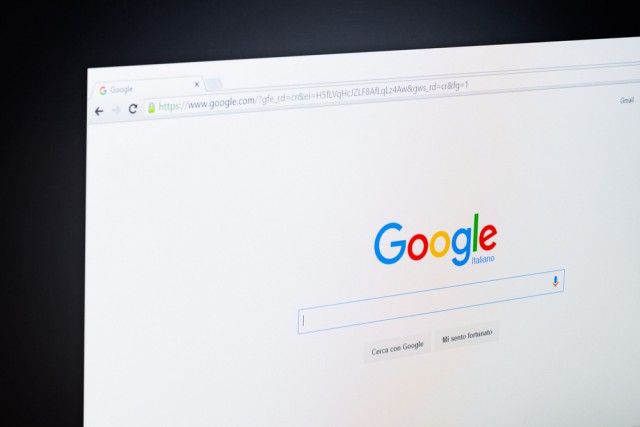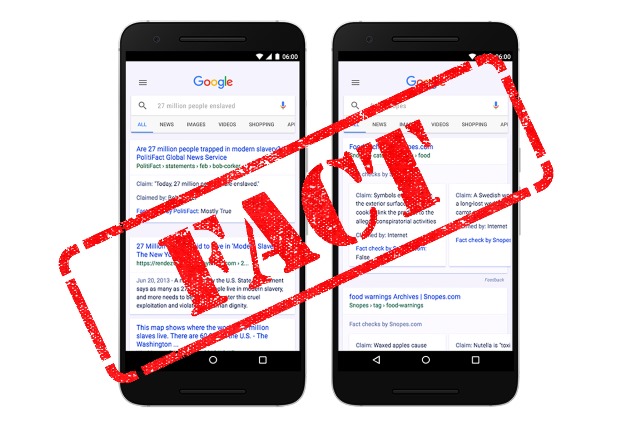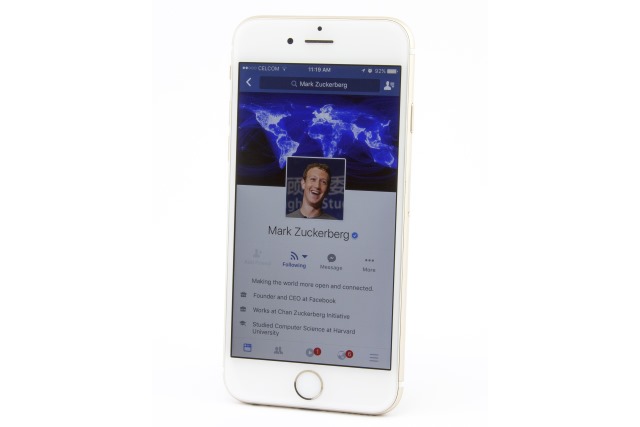
Google tweaks search algorithms to fight fake news and 'offensive' content
The fight against fake news continues, with Google announcing not only changes to search algorithms to help prevent false information from rising to the surface, but also new tools to allow users to report "unexpected, inaccurate or offensive" results.
While the algorithm tweaks should impact on general search results, the reporting tools have been designed for Google's Autocomplete predictions and Featured Snippets which have been problematic in recent months. Updated algorithms should help to ensure more authoritative pages receive greater prominence, while low-quality content is demoted.

Wikipedia founder Jimmy Wales sets up WikiTribune to fight fake news
Donald Trump is obsessed with the notion of FAKE NEWS. Whether his definition is the same as everyone else's is open to debate, but there is a genuine problem with the spread of propaganda, nonsense, and stories which are clearly fabricated. Google and Facebook and other big names from the world of tech have started to fight back, and now it's the turn of Jimmy Wales.
The Wikipedia founder is setting up WikiTribune, an online news publication which focuses on fact-checking, using a combination of paid journalists and contributions from the community. It is described as a "new kind of news platform," and aims to provide "accurate information with real evidence, so that you can confidently make up your own mind."

Google wants to teach teenagers how to use the internet with special workshops
Google is launching a series of Internet Citizens workshops as part of its YouTube Creators for Change program. Aimed at 13- to 18-year-olds, the workshops have been designed to teach teenagers how to spot fake news, how to stay safe online, and how to "make negativity bounce."
Taking in topics such as comment moderation, dealing with online abuse, and how to respond to offensive content and echo chambers, the workshops launch today in the UK, starting in Liverpool, and will spread around the country over the coming weeks. But is the program just stoking the idea of generation snowflake?

Facebook goes on the offensive against fake news and aims to educate users
Having introduced various tools to fight fake news, the next weapon in Facebook's arsenal is education. Over the next few days a large "Tips for spotting fake news" banner will appear at the top of news feeds in 14 countries, but the approach it is taking is unlikely to have much impact on those most influenced by, and most likely to share, fake news.
Like Google, Facebook is taking steps to tackle fake news. The social network has already announced a raft of measures aimed at stamping out the problem, but now it is trying to not only educate people about how to spot fake news, but also to stem the spread of fake news, and to disincentivize the practice.

Google tackles fake news with global fact-checking rollout
The spread of fake news has become something of an epidemic in recent years, and there has been pressure on the likes of Google, Facebook and Twitter to do more to stem its flow. Google's Fact Check feature is not new, but today the search giant is rolling out the feature around the world.
A global rollout is important if such a tool is to have any real impact. It's all well and good to have reports fact-checked on one side of the world, but it's of little use if the same fake stories remain unquestioned and untested elsewhere. Google is doing its part by making the Fact Check label available in Google News everywhere, and spreading it into search results in all languages as well.

Worldwide web inventor Tim Berners-Lee's biggest concerns: privacy, fake news and political ads
It was 28 years ago that Tim-Berners-Lee submitted his proposal for the worldwide web. What he envisioned as an open platform that would break down global barriers has become a wild beast with endless problems. Talking on the anniversary of his invention, Berners-Lee has spoken about his concerns for the web.
He has three problems in his crosshairs, and he says the trio of issues is something "we must tackle in order for the web to fulfil its true potential as a tool that serves all of humanity." But he does not come armed with solutions; it's at least partly down to us to sort things out.

Google is helping to spread fake news with its search results and Google Home
Google stands accused of spreading fake news through the "featured snippets" feature of its search engine. The problem is made worse by the company's Google Home speaker which parrots these snippets and presents them as fact.
Perform a search on Google, and in many cases you will find that there is a box at the top of the screen that directly answers the question you asked. This is a featured snippet. The problem is that these undergo little -- if any -- vetting, and Google merely presents the top result... even if that happens to be a nonsensical article from Breitbart.

Facebook rolls out a Disputed label to help weed out fake news -- albeit weakly
Donald Trump may have turned the idea of fake news into something of a joke, but there is a serious problem with fabricated stories on Facebook. Conscious of the potential for not only ad revenue through clicks, but also the ability to mould the news narrative, money-seekers and those with a (usually political) agenda have become skilled in flooding the social network with sensational, scary stories that are simply not true.
Mark Zuckerberg has already talked about his desire to drive the scourge of fake news from his site, and now we can see this plan in action. It's not quite on the scale of Google's fact checking regime, but the social network will now flag up potential fake news with a Disputed label, and also provide links to sites that question the veracity of the stories in question.

Mark Zuckerberg's rambling letter covers fake news on Facebook, nudity and profanity -- and his ego
In a lengthy missive that has been described by some as a manifesto, Mark Zuckerberg has written a counterattack to criticism of his beloved Facebook. He waxes lyrical about a rosy vision of the future in which communities come together, everyone is included, and everyone is empowered -- largely facilitated by him. For a man who denies he has political leanings, he certainly seems to have been studying Speaking Like A Politician 101. He is nothing if not almost impressively vague.
But when Zuckerberg is not massaging his own ego as he dreams up ways to save the world ("I hope we can come together to build a global community that works for everyone"), the content of the website he created still gets a mention. In the age of Trump there is endless talk of fake news, and Facebook has certainly played a role in helping this to spread. This, along with other problems, such as the spread of terrorist propaganda, is something Zuckerberg wants to combat, and he's placing a great deal of confidence in artificial intelligence and his beloved algorithms.

Google expands fact checking to help tackle fake news
It's something that should delight Donald Trump -- Google is helping to fight fake news. Whether the company's move to help keep web users better informed is in keeping with the US president's penchant for "alternative facts" remains to be seen, but for everyone else it is great news.
Google is far from being the first technology company to lend its support to the fake news fighting army -- Facebook and the BBC are already doing their bit too. The expansion of Google News fact checking means that the Fact Check label is spreading further around the globe, giving people in more parts of the world the assurance that what they're reading has been verified.

New authentication platform seeks to tackle fake news and profiles
Fake news is big news at the moment, making it increasingly difficult to assess the reliability of material, particularly when it appears online.
A new company launching today at the 2017 RSA conference is seeking to create a secure online community to identify individuals and provide a more "authentic" online experience.

Wikipedia bans use of Daily Mail as a source because it is 'unreliable'
In a move that will surprise few people familiar with the newspaper, Wikipedia has chosen to ban the use of the British Daily Mail as a source. Editors for the site reached the conclusion that the paper "is generally unreliable, and its use as a reference is to be generally prohibited".
While this does not constitute an outright ban -- something which would probably not go down well with the Wikipedia community -- editors are strongly encouraged to find an alternative source wherever possible. The decision comes after a vote in which editors debated the Daily Mail's "reputation for poor fact checking, sensationalism, and flat-out fabrication". In other words: fake news.

Facebook fights fake news with a trio of tweaks to trending topics
The problem of fake news has been around for a little while -- particularly on Facebook -- but it's something that has been thrown into the spotlight thanks to President Trump and his continuing complaints about the media, in particular about the size of his inauguration crowds.
Facebook is one of many technology companies to announce plans to tackle fake news, and now the social network has unveiled its latest round of fakery fighting. Three major changes are coming to Trending topics: firstly, Facebook will no longer personalize news for individual users; secondly headlines and sources will be listed alongside topic headings to help give context; finally the trending algorithm is being updated.
